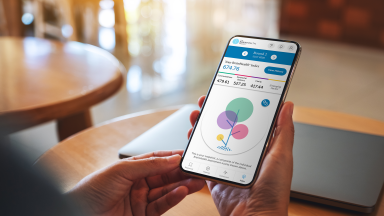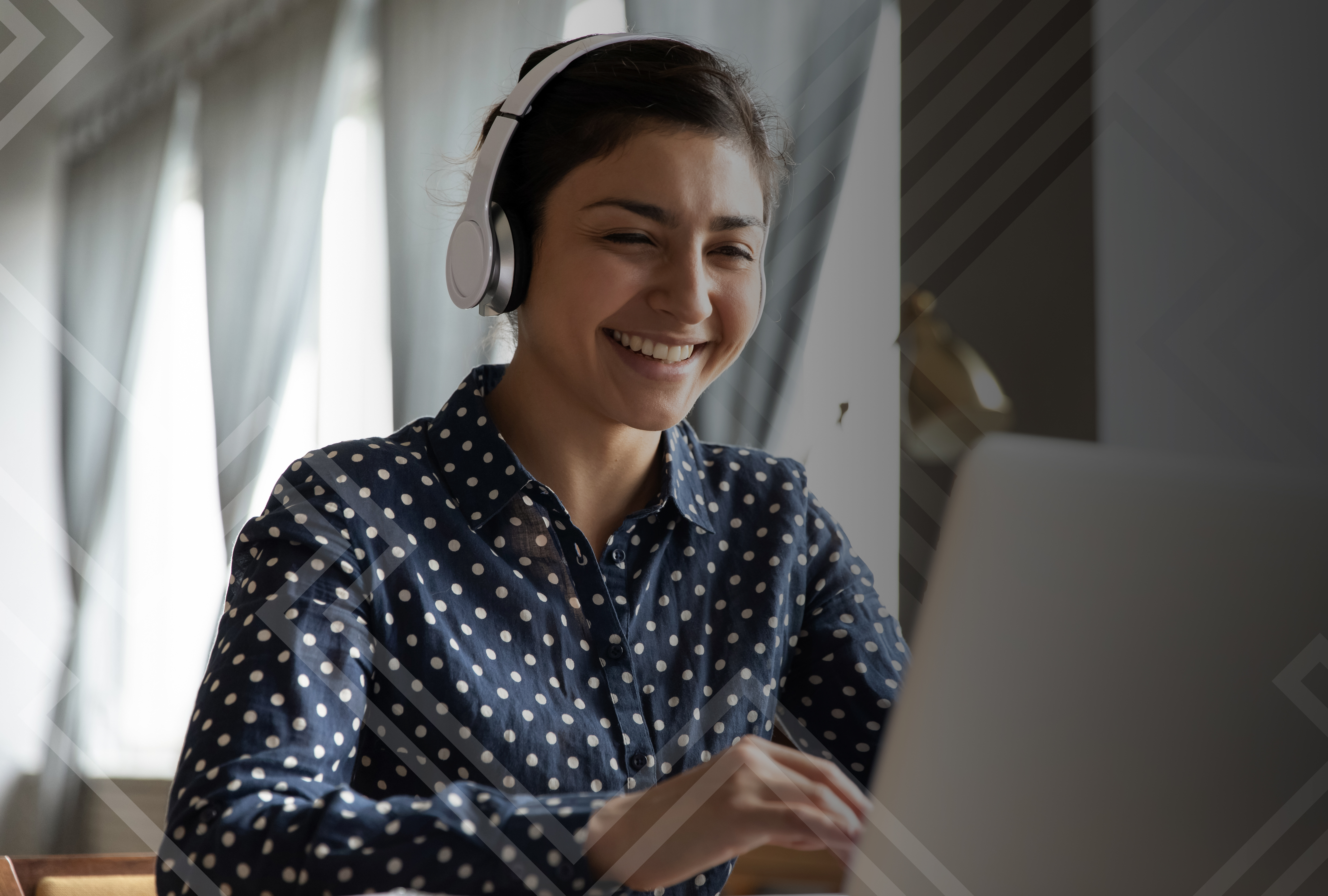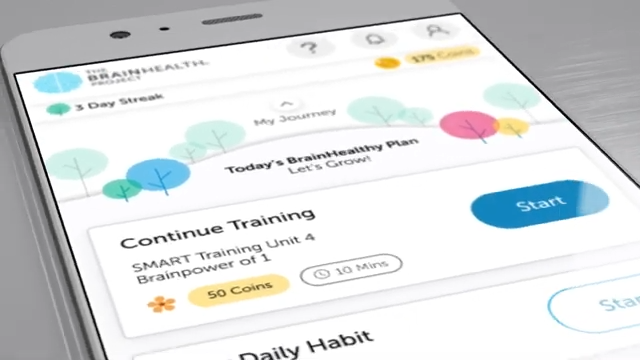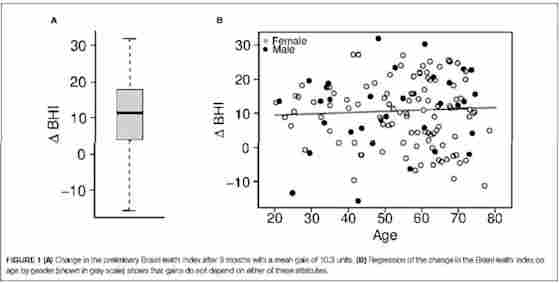
Figure 5. (A) Change in the preliminary BrainHealth Index after 3 months with a mean gain of 10.3 units. (B) Regression of the change in the BrainHealth Index on age by gender (shown in gray scale) shows that gains do not depend on either of these attributes.
- Resilience – measured through a person’s level of meaningful activities, happiness and social support available to them
- Fortitude (Emotional Balance) – emotional stability derived from a sense of being anchored to something bigger than oneself, and influenced by levels of happiness, stress and anxiety
- Clarity (Connectedness) – one’s ability to see a way forward by employing logical reasoning, possibility thinking, solitude to solve problems, and an ability to synthesize information rather than getting bogged down in the details
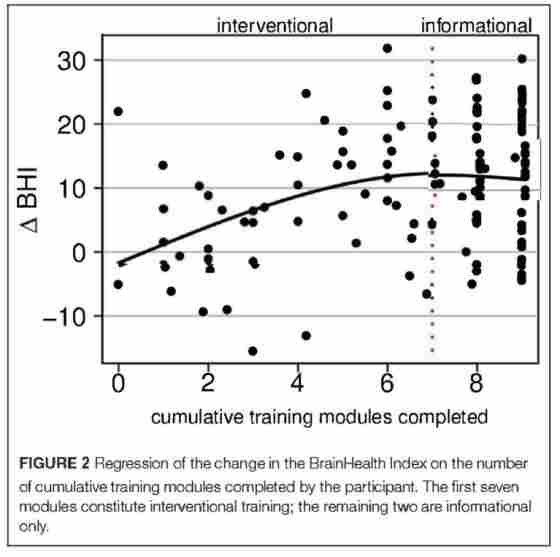
Figure 2 Regression of the change in the BrainHealth Index on the number of cumulative training modules completed by the participant. The first seven modules constitute interventional training; the remaining two are informational only.
